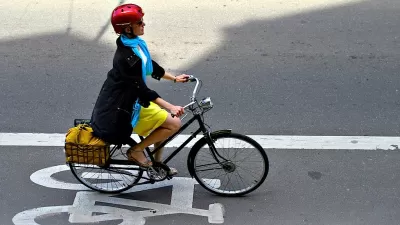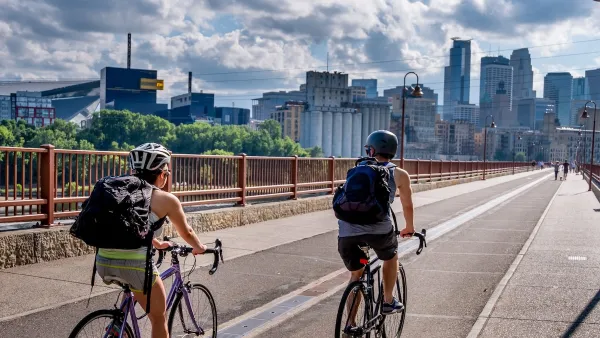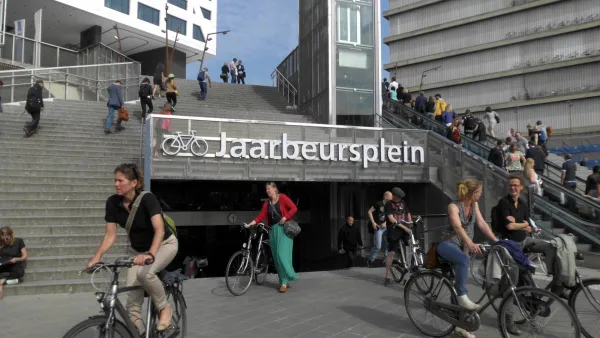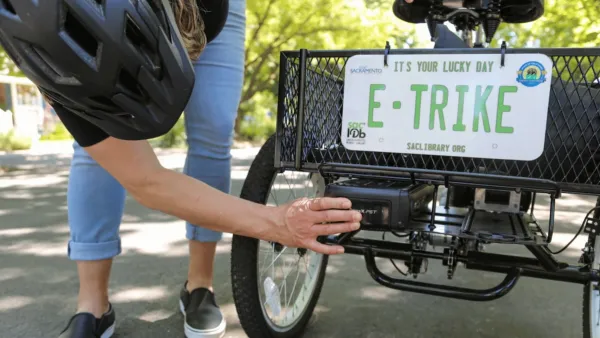In his new book, James Longhurst asks: "Why are most American cities still so ill-prepared to handle cyclists?"

The history professor answers questions during a recent stop on his book tour to promote Bike Battles: A History of Sharing the American Road.
The road is a shared resource. "It’s easy to forget it’s shared between many different users, and that’s the only way the public road had really existed for millennia before one user type became more successful than others."
He uses a model of path dependency to analyze policy. "Cities are the debris fields of history. They’re the leftover physical monuments of decisions that were made and not made in the past." This model offers us the freedom to politically evolve. "[Decisions] may be poured in concrete, but they’re not set in stone."
He touches upon the history of Golden Ages for bicycles in the United States, but notes that the current bike boom is more than a fad because the economics of transportation has fundamentally changed. "Even as gas prices come down, we can’t afford the infrastructure for cars. It doesn’t get cheaper the more of it we build."
Longhurst believes that a change in the perception of who uses bicycles is critically important to changing the politics around bicycling. "If you can make the user group mainstream, so people in cars look at them and think ‘that’s us,’ then voters and taxpayers will see the users simply as the public."
FULL STORY: Bike Battles: Why We Debate Who Owns the Road

Planetizen Federal Action Tracker
A weekly monitor of how Trump’s orders and actions are impacting planners and planning in America.

Chicago’s Ghost Rails
Just beneath the surface of the modern city lie the remnants of its expansive early 20th-century streetcar system.

San Antonio and Austin are Fusing Into one Massive Megaregion
The region spanning the two central Texas cities is growing fast, posing challenges for local infrastructure and water supplies.

Since Zion's Shuttles Went Electric “The Smog is Gone”
Visitors to Zion National Park can enjoy the canyon via the nation’s first fully electric park shuttle system.

Trump Distributing DOT Safety Funds at 1/10 Rate of Biden
Funds for Safe Streets and other transportation safety and equity programs are being held up by administrative reviews and conflicts with the Trump administration’s priorities.

German Cities Subsidize Taxis for Women Amid Wave of Violence
Free or low-cost taxi rides can help women navigate cities more safely, but critics say the programs don't address the root causes of violence against women.
Urban Design for Planners 1: Software Tools
This six-course series explores essential urban design concepts using open source software and equips planners with the tools they need to participate fully in the urban design process.
Planning for Universal Design
Learn the tools for implementing Universal Design in planning regulations.
planning NEXT
Appalachian Highlands Housing Partners
Mpact (founded as Rail~Volution)
City of Camden Redevelopment Agency
City of Astoria
City of Portland
City of Laramie





























